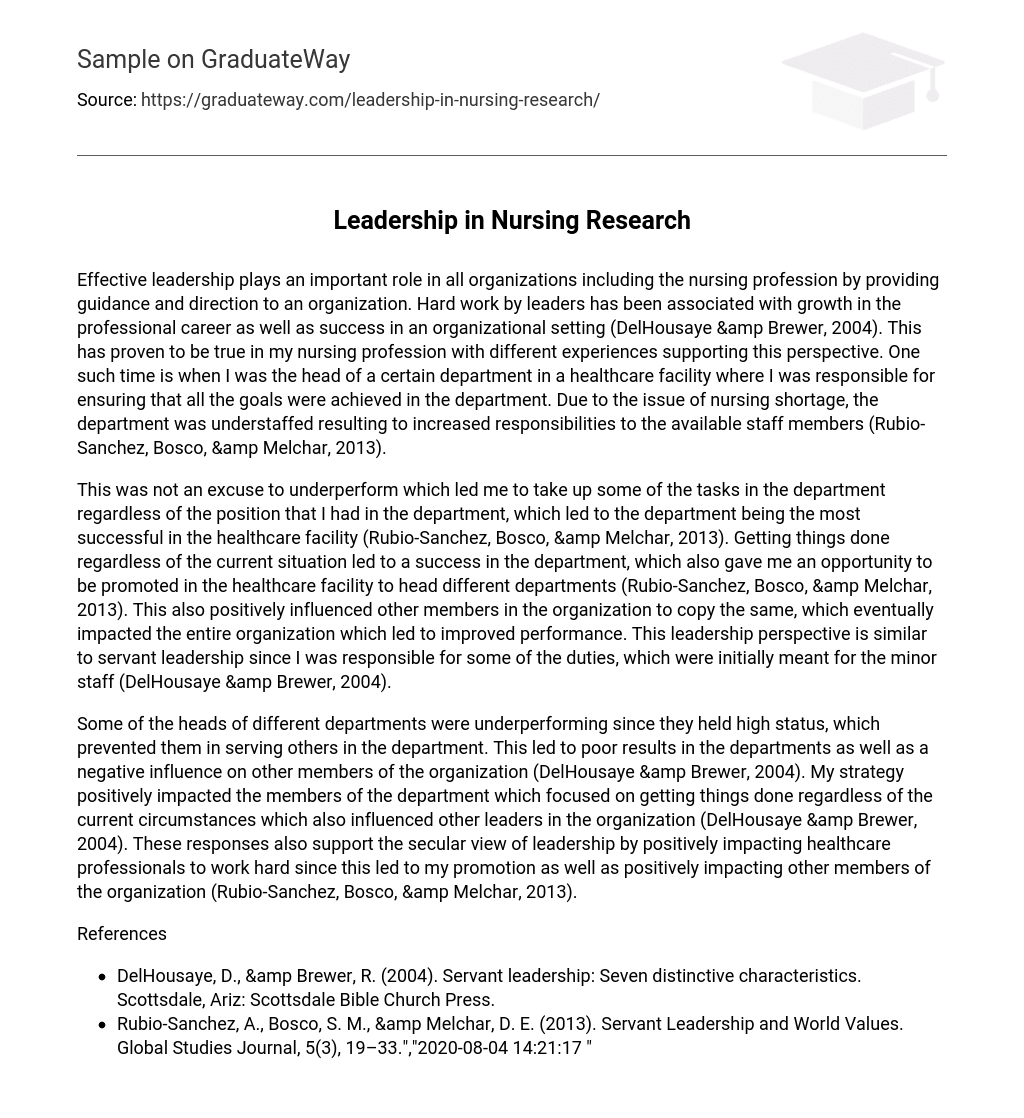Effective leadership plays an important role in all organizations including the nursing profession by providing guidance and direction to an organization. Hard work by leaders has been associated with growth in the professional career as well as success in an organizational setting (DelHousaye & Brewer, 2004). This has proven to be true in my nursing profession with different experiences supporting this perspective. One such time is when I was the head of a certain department in a healthcare facility where I was responsible for ensuring that all the goals were achieved in the department. Due to the issue of nursing shortage, the department was understaffed resulting to increased responsibilities to the available staff members (Rubio-Sanchez, Bosco, & Melchar, 2013).
This was not an excuse to underperform which led me to take up some of the tasks in the department regardless of the position that I had in the department, which led to the department being the most successful in the healthcare facility (Rubio-Sanchez, Bosco, & Melchar, 2013). Getting things done regardless of the current situation led to a success in the department, which also gave me an opportunity to be promoted in the healthcare facility to head different departments (Rubio-Sanchez, Bosco, & Melchar, 2013). This also positively influenced other members in the organization to copy the same, which eventually impacted the entire organization which led to improved performance. This leadership perspective is similar to servant leadership since I was responsible for some of the duties, which were initially meant for the minor staff (DelHousaye & Brewer, 2004).
Some of the heads of different departments were underperforming since they held high status, which prevented them in serving others in the department. This led to poor results in the departments as well as a negative influence on other members of the organization (DelHousaye & Brewer, 2004). My strategy positively impacted the members of the department which focused on getting things done regardless of the current circumstances which also influenced other leaders in the organization (DelHousaye & Brewer, 2004). These responses also support the secular view of leadership by positively impacting healthcare professionals to work hard since this led to my promotion as well as positively impacting other members of the organization (Rubio-Sanchez, Bosco, & Melchar, 2013).
References
- DelHousaye, D., & Brewer, R. (2004). Servant leadership: Seven distinctive characteristics. Scottsdale, Ariz: Scottsdale Bible Church Press.
- Rubio-Sanchez, A., Bosco, S. M., & Melchar, D. E. (2013). Servant Leadership and World Values. Global Studies Journal, 5(3), 19–33.”,”2020-08-04 14:21:17 “





